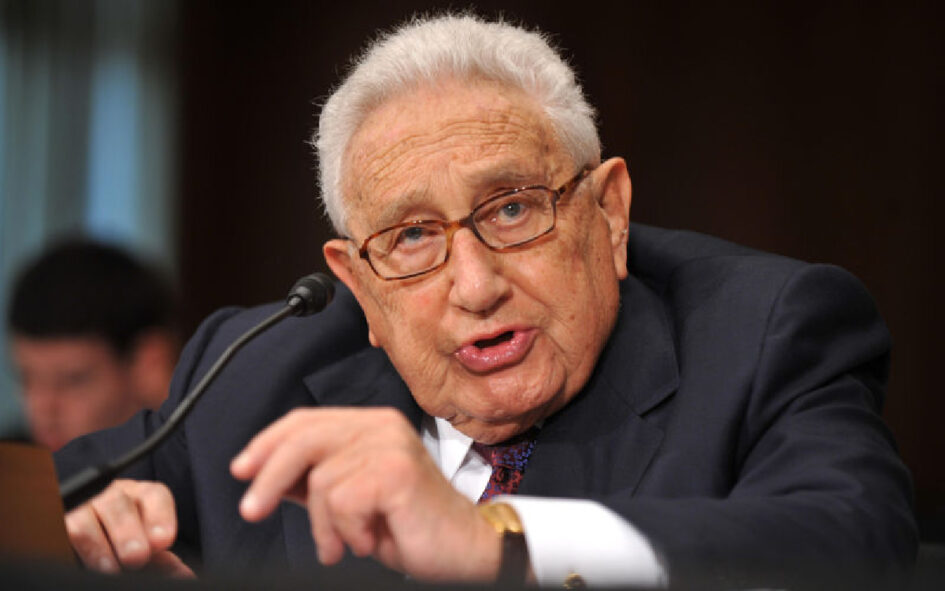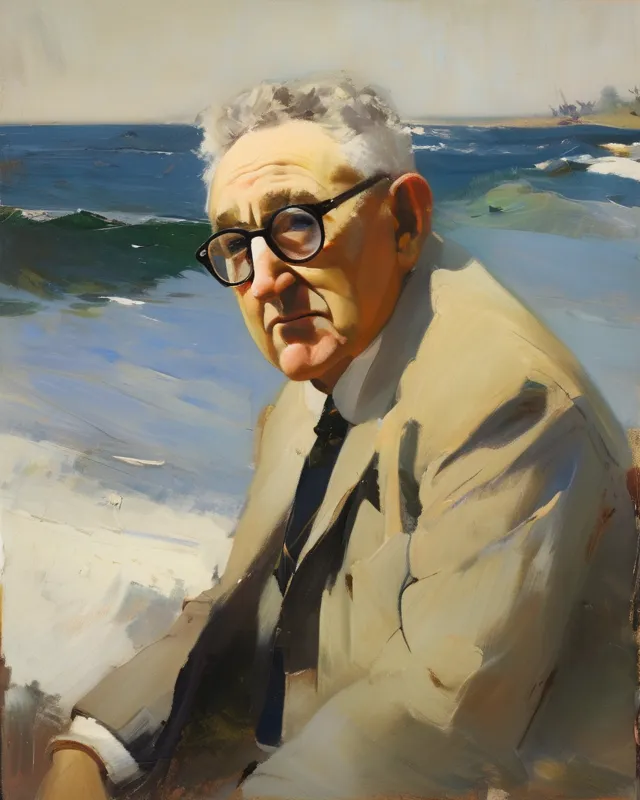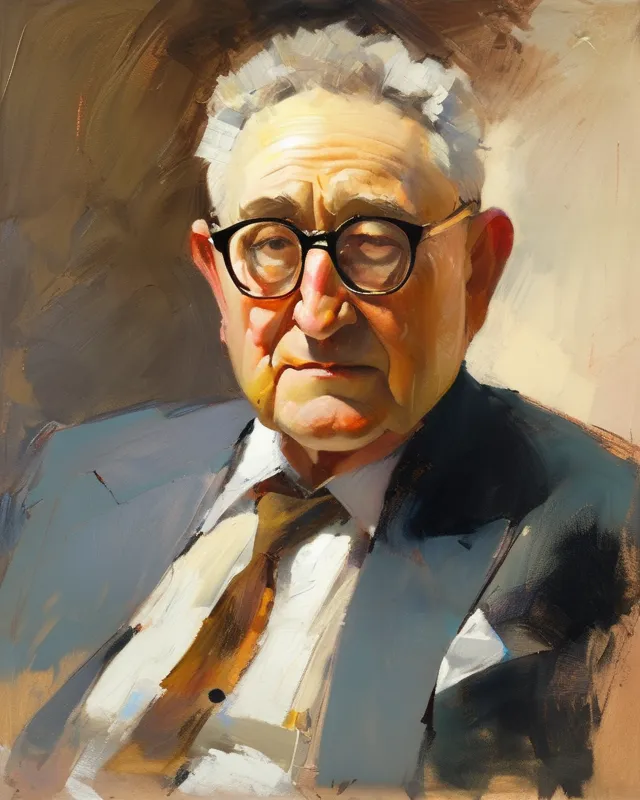Henry Kissinger’s death draws to a close the epoch of intellectualism in foreign policy to which he was committed following his early study of and belief in a system of organised strategic balance and restraint of the kind that emerged from the Treaty of Westphalia in the 17th century.
I first met Henry Kissinger in 1971 at Harvard, where even then, he was extolling the virtues of balance and restraint in foreign policy.
Kissinger’s great strength was that he thought in original terms, eschewing the derivative thinking which so dominates patterns of thought these days.
His pathbreaking meetings with Mao Zedong and Chou En-lai in 1975 altered the strategic balance of the world by pulling China away from the Soviet Union into a strategic accommodation with the United States.
His development of the One China policy remains to this day the pivotal organising idea which underwrites the equilibrium between the world’s two greatest powers, the United States and China.
Perhaps above all else, this remains Henry Kissinger’s greatest insight and contribution to world peace.
I met Henry Kissinger many times over the years and had the honour of Henry agreeing to be deputy chair during my decade as chairman of China Development Bank’s International Advisory Council.
China Development Bank is the principal policy bank of the Chinese state. It underwrote nearly all the new Chinese cities as well as ambitious plans in slum clearance, ports and wharves, highways, telecommunications, fast trains, aged care and health facilities.
Even in the first decade of this century, when Henry was already in his 80s, he attended China Development Bank regularly where he and I were deputised to brief and discuss the outcome of the meetings with the Chinese premier and deputy premier.
The last time I saw him in Beijing, he paid me the compliment of telling me my conceptual approach to strategic policy most closely resembled that of his own and, at the time, that of Zbigniew Brzezinski, the US national security adviser, who actually put the Nixon/Mao accords into place under the presidency of Jimmy Carter, following Henry’s departure from the secretaryship of state.
He thought the idea of the APEC Leaders’ meeting represented a gigantic conceptual leap in regional cooperation of a kind the US had only formerly experienced with Europe – but never before with Asia.
Public commentary will attest to the controversial decisions that Henry Kissinger made in respect of a number of regions in the world, and in his demise, we will probably hear more of that.
But in a relatively limited period of time, he was able to negotiate a ceasefire and terminate the Vietnam War while engaging in Arab/Israeli peacemaking initiatives following the Yom Kippur War ahead of President Jimmy Carter’s Camp David accords with its framework for peace in the Middle East.
Henry Kissinger lived to a hundred. Itself a mighty achievement for someone so actively involved in foreign policy virtually right up until his death.
The international system is unlikely to see again so compelling a person as Henry Kissinger, certainly one constantly calibrating movements in the balance of world affairs and doing it in real time. But all the time searching for the peace and equilibrium to which he was so dedicated.




